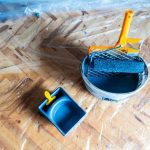What is the best CRM for home improvement companies? Customer Relationship Management (CRM) systems are essential tools for managing customer relationships, sales, and marketing efforts. For home improvement companies, finding the right CRM can make a significant impact on productivity, sales, and customer satisfaction. In this article, we will explore the importance of CRM for home improvement companies and provide insights into choosing the best CRM for your business.
Home improvement companies face unique challenges when it comes to managing customer relationships and sales processes. Understanding these specific needs is crucial in selecting the right CRM solution. We will delve into the key features that home improvement companies should look for in a CRM to effectively manage leads, track sales opportunities, and enhance customer communication.
Additionally, we will discuss some of the top CRMs available for home improvement businesses, along with case studies that illustrate how these companies have benefited from implementing CRMs. By understanding the impact of a CRM on home improvement companies and gaining insights from real-life examples, you can make an informed decision when choosing the right CRM for your business.
Stay tuned as we guide you through every step of integrating a CRM into your home improvement company to ensure success and growth.
Understanding the Needs of Home Improvement Companies
For home improvement companies, having a customer relationship management (CRM) system is essential for managing their sales, marketing, and customer service activities. The best CRM for home improvement companies should address their specific needs, such as lead management, project tracking, and customer communication. These businesses typically have unique requirements that differ from those in other industries, making it crucial to find a CRM that caters to their distinct needs.
One of the primary needs of home improvement companies is effective lead management. These businesses often rely on generating and converting leads into customers for their success. A robust CRM should include lead tracking and management features to help home improvement companies streamline their sales process and maximize lead conversion rates.
Additionally, project tracking is another key need for these companies, as they handle various projects simultaneously. Having a CRM that allows them to manage projects, track progress, and allocate resources efficiently is vital for their operations.
Customer communication is also a critical requirement for home improvement companies. The best CRM for these businesses should facilitate seamless communication with customers throughout the sales and project execution process. This includes features such as automated email responses, appointment scheduling tools, and customer feedback mechanisms. By effectively meeting these needs through a CRM system, home improvement companies can enhance their customer relationships and improve overall operational efficiency.
To determine what is the best crm for home improvement companies, it’s important to evaluate potential options based on how well they address the unique needs of these businesses. Considerations should include lead management capabilities, project tracking features, and tools for effective customer communication.
| CRM Features | Importance |
|---|---|
| Lead Management | Streamlines sales process |
| Project Tracking | Efficient resource allocation |
| Customer Communication Tools | Enhanced customer relationships |
Key Features to Look for in a CRM for Home Improvement Companies
When it comes to selecting a CRM for a home improvement company, it’s crucial to look for specific key features that will help streamline operations, improve customer relationships, and ultimately drive business growth. Here are some essential features to consider when choosing the best CRM for your home improvement business:
- Lead Management: A good CRM should have robust lead management tools that allow you to track and manage all leads from initial contact to conversion. This includes the ability to capture leads from various sources such as website forms, phone calls, and emails.
- Project Management: Look for a CRM that offers project management features tailored to the needs of home improvement companies. This may include tools for scheduling, task assignment, resource allocation, and progress tracking for different projects.
- Communication Tools: The best CRM for home improvement companies should offer communication tools such as email integration, SMS capabilities, and even chat functionality to ensure seamless communication with customers and team members.
- Customization Options: Every home improvement company has unique processes and workflows. A CRM with robust customization options allows you to tailor the platform to fit your specific business needs.
- Reporting and Analytics: Data is crucial for making informed business decisions. Look for a CRM that provides comprehensive reporting and analytics features, allowing you to track sales performance, customer engagement metrics, and other key indicators.
These are just a few of the key features that home improvement companies should prioritize when evaluating different CRMs. By choosing a platform that offers these essential features, businesses can better streamline their processes, enhance customer relationships, and drive overall success.
Ultimately every company has specific needs which take priority over others but these features should form the basis of what is the best crm for home improvement companies“.
Top CRMs for Home Improvement Companies
When it comes to home improvement companies, finding the best CRM software can be crucial for success. But with so many options available, it can be overwhelming to choose the right one. In this section, we will explore some of the top CRMs that are tailored specifically for home improvement companies.
HubSpot
HubSpot is a popular choice for home improvement companies due to its user-friendly interface and robust marketing automation features. This CRM allows you to manage customer relationships, track sales pipelines, and create targeted marketing campaigns all in one platform. With HubSpot’s customizable dashboards and reporting tools, home improvement businesses can gain valuable insights into their customer data and sales performance.
JobNimbus
JobNimbus is designed specifically for contractors and home improvement professionals, making it a top choice for businesses in this industry. This CRM offers features such as project management, estimation tools, and job tracking, which are essential for managing projects in the home improvement sector. JobNimbus also integrates with various other business applications, making it easier for companies to streamline their processes and improve efficiency.
Procore
Procore is another CRM that caters to the unique needs of construction and home improvement companies. This comprehensive platform offers project management, resource planning, and financial tools that are essential for businesses in the industry. With Procore’s mobile accessibility and real-time collaboration features, home improvement companies can stay connected with their teams and clients while on the go.
In summary, when considering what is the best CRM for home improvement companies, factors such as industry-specific features, ease of use, integration capabilities, and scalability should all be taken into account. The aforementioned CRMs – HubSpot, JobNimbus, and Procore – are just a few examples of top options available for home improvement businesses looking to enhance their customer relationship management processes.
Case Studies
Increased Customer Retention and Satisfaction
Home improvement companies have seen a significant boost in customer retention and satisfaction after implementing a CRM system. By keeping track of customer preferences, purchase history, and service requests, these companies are able to provide personalized and efficient services to their clients. This has resulted in higher customer satisfaction rates and has ultimately led to increased customer loyalty.
Streamlined Project Management
One of the key benefits that home improvement companies have experienced with CRMs is the ability to streamline project management. With a CRM system in place, these businesses can easily track project progress, assign tasks to team members, and ensure timely completion of projects. This has not only improved operational efficiency but has also allowed for better coordination among employees and subcontractors.
Improved Sales Performance
CRM systems have also played a crucial role in improving the sales performance of home improvement companies. By leveraging the lead tracking and management features of CRMs, these businesses have been able to capture more leads, nurture them effectively, and convert them into paying customers. The data analytics capabilities of CRMs have also provided valuable insights into sales trends and customer behaviors, empowering home improvement companies to make informed business decisions.
These case studies highlight just some of the many ways that home improvement companies have benefitted from using CRM systems. The right CRM can truly transform the way these businesses operate, leading to enhanced customer relationships, streamlined processes, and improved business performance.
Choosing the Right CRM for Your Home Improvement Business
When it comes to choosing the right CRM for your home improvement business, there are several factors to consider. One of the most important things to think about is the specific needs of your company.
Consider what areas of your business could benefit from a CRM, whether it’s managing customer relationships, tracking sales leads, or analyzing marketing efforts. Understanding the unique aspects of your home improvement business will help you narrow down the options and find a CRM that caters to your specific requirements.
Another key factor in choosing a CRM for your home improvement company is looking for one with industry-specific features. This includes functionalities tailored to the needs of home improvement businesses such as project management, estimating and quoting tools, inventory management, and scheduling capabilities. These industry-specific features will streamline operations and improve efficiency within your company.
When evaluating different CRMs, it’s also crucial to consider ease of use and integration capabilities. Look for a CRM that is user-friendly and can seamlessly integrate with other software that your company uses such as accounting systems or project management tools. Additionally, consider the scalability of the CRM – make sure that it can grow with your business as you continue to expand.
| CRM | Key Features |
|---|---|
| JobNimbus | Project management, estimating and quoting tools |
| ServiceTitan | Inventory management, scheduling capabilities |
| Bridgetree | Lead tracking and customer relationship management |
By considering these factors and exploring different options, you can ultimately select the best CRM for your home improvement business.
Implementing and Integrating CRM Into Your Home Improvement Company
Implementing and integrating a CRM system into your home improvement company can significantly improve your business operations and customer satisfaction. However, it is important to carefully plan and execute the implementation process to ensure a smooth transition. Here are some key steps to effectively integrate a CRM into your home improvement business:
1. Identify Your Goals: Before implementing a CRM system, it is crucial to identify the specific goals you want to achieve with the software. Whether it’s improving lead management, enhancing customer communication, or streamlining project management, clearly defining your objectives will guide the integration process.
2. Train Your Team: Proper training is essential for successfully integrating a CRM into your home improvement company. Make sure that all employees who will be using the system are adequately trained on its features and functionalities. This will help them understand how to leverage the CRM to its full potential and maximize its benefits.
3. Customize and Configure: When integrating a CRM for home improvement companies, it’s important to customize the system according to your specific business needs. This may include configuring lead capture forms, setting up automated workflows, and tailoring customer communication templates. Customizing the CRM ensures that it aligns with your business processes and provides maximum utility.
By following these steps and taking into account other best practices related to change management, data migration, and ongoing support, you can seamlessly integrate a CRM into your home improvement company. Keep in mind that the success of CRM implementation largely depends on how well it is integrated into your existing business processes and how effectively your team utilizes its features.
Conclusion
In conclusion, choosing the right CRM for your home improvement company can have a significant impact on the efficiency and effectiveness of your operations. By understanding the specific needs of home improvement companies, such as lead management, project tracking, and customer communication, you can identify the key features that are essential for a CRM to have.
After analyzing the top CRMs for home improvement companies and reviewing case studies of how these companies have benefited from implementing CRMs, it is clear that investing in the right CRM can lead to improved customer satisfaction, streamlined processes, and increased sales.
When considering what is the best CRM for home improvement companies, it is important to thoroughly evaluate your options and choose a solution that aligns with your business goals and requirements. Additionally, integrating and implementing the chosen CRM into your company’s existing systems and workflows is crucial for its success. With careful consideration and proper execution, a CRM has the potential to transform your home improvement business for the better.
Frequently Asked Questions
Which CRM Platform Is Best?
The best CRM platform will depend on the specific needs and goals of the business. Some popular options include Salesforce, HubSpot, and Zoho CRM. Each platform offers different features and pricing plans, so it’s important to assess which one aligns best with the organization’s requirements.
Which Is the No 1 CRM?
Salesforce is often considered the number one CRM platform due to its widespread adoption, extensive features, and strong customer support. It has a large market share and is known for its scalability, making it suitable for businesses of all sizes.
Which Is the Most Commonly Used CRM Software?
Salesforce is the most commonly used CRM software globally, with a significant portion of the market share. Its popularity can be attributed to its customizable features, integration capabilities, and robust analytics tools.
However, other commonly used CRM software includes HubSpot, Zoho CRM, and Microsoft Dynamics 365. Each software has its own strengths and weaknesses depending on the specific needs of the business.

I’m thrilled to have you here as a part of the Remodeling Top community. This is where my journey as an architect and remodeling enthusiast intersects with your passion for transforming houses into dream homes.





